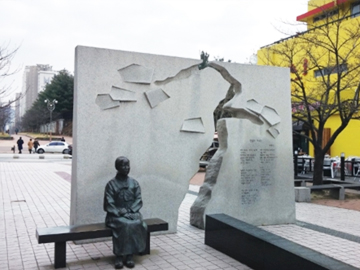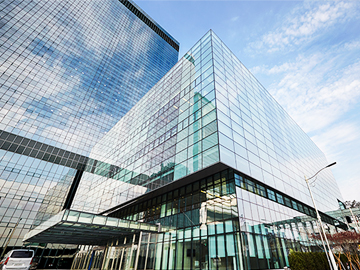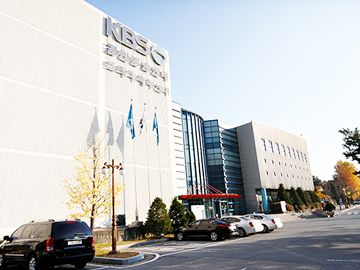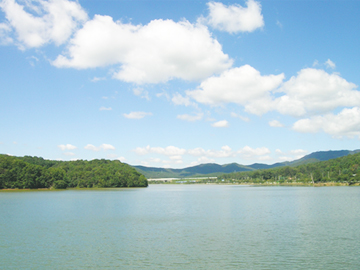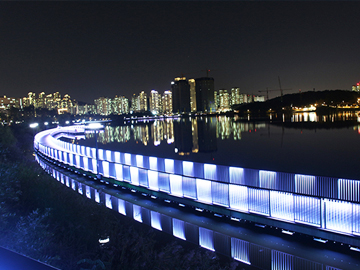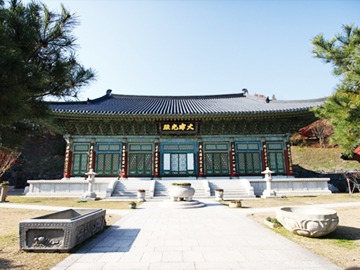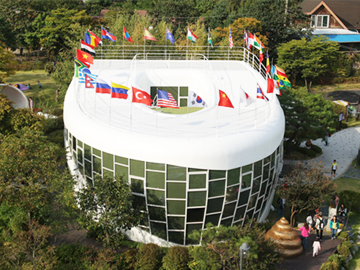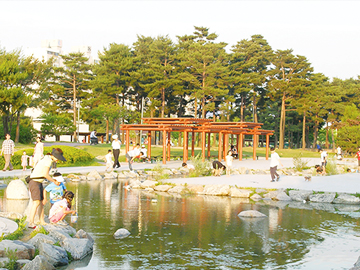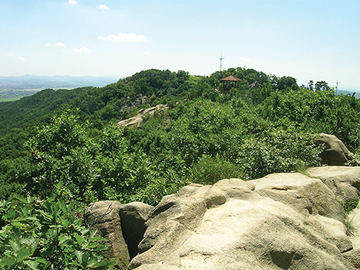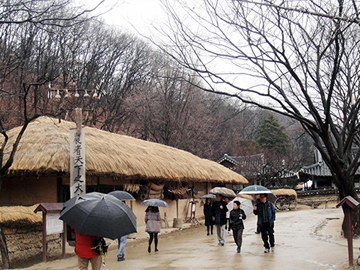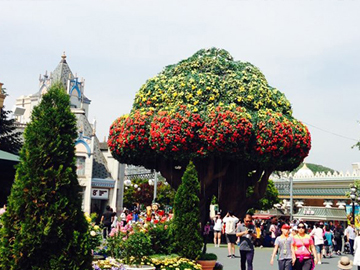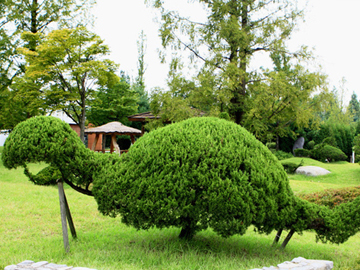Suwon Hwaseong Fortress
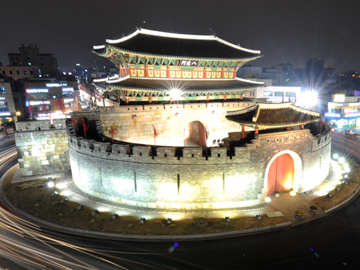
Suwon was called the “second capital” during the Joseon Dynasty, and the fortress stands at the center of the city. The fortress was built by King Jeongjo, the 22nd monarch of the Joseon Dynasty. Elegant and majestic, it is an architecture that stands out as exceptionally unique in the history of Korean fortress construction. It was named a UNESCO World Heritage site in December 1997.
Hwaseong Haenggung Palace
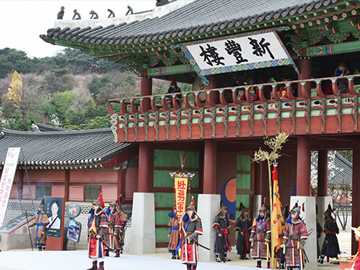
Located within Hwaseong Fortress, the palace was a temporary residence when the King visited and a government office for the Hwaseong governor during ordinary times. The palace has the same shape as the King’s main palace in Seoul. In 1796, Hwaseong Haenggung Palace was the country’s largest temporary castle with 576 sections.
Suwon Hwaseong Museum
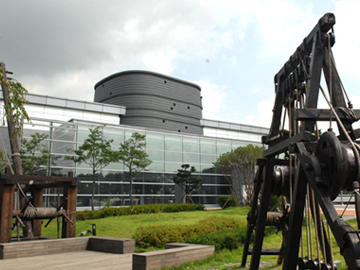
The Suwon Hwaseong Museoum was established to promote the excellence of the World Heritage-designated Suwon Hwaseong Fortress and Korean culture. Visitors can learn about the fortress’ history and culture through models and related artifacts, and take part in hands-on educational programs.
Paldalmun Market
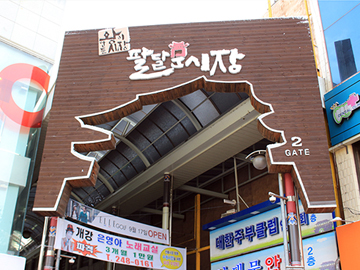
Of the many traditional markets in the Suwon Hwaseong Fortress Zone, Paldalmun is referred to as the “king-made market” with centuries of history and tradition.
Fried Chicken Street
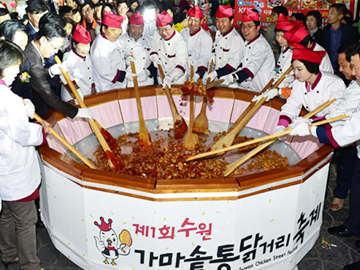
Located on the lower side of Maehyanggyo Bridge, the Fried Chicken Street has become a hotspot among local and international tourists following media exposure. Fried in cauldrons, the chicken has a crispy and chewy texture.
Flying Suwon
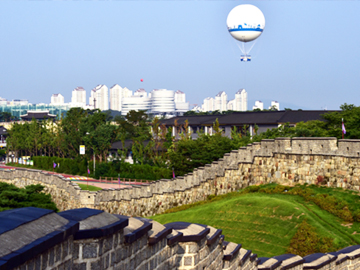
Flying Suwon is a pile-supported helium balloon that rises 70 to 150 meters, allowing tourists to see Suwon from the sky. It can take up to 20 passengers.



